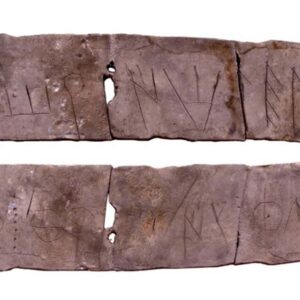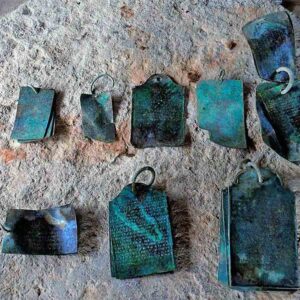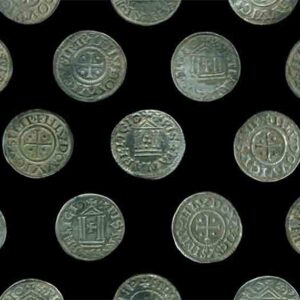Up to date
1 February, 2024 – 21:31
ancient-origins
Did the Historic Greeks and Romans Expertise Alzheimer’s?
- Learn Later
Leigh Hopper/College of Southern California
You may suppose age-related dementia has been with us all alongside, stretching again to the traditional world.
However a brand new evaluation of classical Greek and Roman medical texts means that extreme reminiscence loss — occurring at epidemic ranges in the present day — was extraordinarily uncommon 2,000 to 2,500 years in the past, within the time of Aristotle, Galen and Pliny the Elder.
The USC-led analysis, revealed within the Journal of Alzheimer’s Disease, bolsters the concept Alzheimer’s illness and associated dementias are illnesses of contemporary environments and existence, with sedentary conduct and publicity to air air pollution largely accountable.
“The traditional Greeks had very, only a few — however we discovered them — mentions of one thing that might be like delicate cognitive impairment,” stated first writer Caleb Finch, a College Professor on the USC Leonard Davis College of Gerontology. “After we received to the Romans, and we uncovered at the least 4 statements that counsel uncommon circumstances of superior dementia — we will’t inform if it’s Alzheimer’s. So, there was a development going from the traditional Greeks to the Romans.”
- Black Girls Have been Major Victims of Black Loss of life in Medieval London
- Sadistic Vlad the Impaler Cried Actual Tears of Blood, Examine Reveals
Will we see Alzheimer’s in historical past?
Historic Greeks acknowledged that growing older generally introduced reminiscence points we might acknowledge as delicate cognitive impairment, or MCI, however nothing approaching a serious lack of reminiscence, speech and reasoning as brought on by Alzheimer’s and different varieties of dementia.
Finch and co-author Stanley Burstein, a historian at California State College, Los Angeles, pored over a serious physique of historic medical writing by Hippocrates and his followers. The textual content catalogs illnesses of the aged reminiscent of deafness, dizziness and digestive problems — however makes no point out of reminiscence loss.
Centuries later in historic Rome, just a few mentions crop up. Galen remarks that on the age of 80, some aged start to have issue studying new issues. Pliny the Elder notes that the senator and well-known orator Valerius Messalla Corvinus forgot his personal title. Cicero prudently noticed that “aged silliness … is attribute of irresponsible previous males, however not of all previous males.”
Finch speculates that as Roman cities grew denser, air pollution elevated, driving up circumstances of cognitive decline. As well as, Roman aristocrats used lead cooking vessels, lead water pipes and even added lead acetate into their wine to sweeten it — unwittingly poisoning themselves with the highly effective neurotoxin.
(A number of historic writers acknowledged the toxicity of lead-containing materials, however little progress was made in coping with the issue till nicely into the twentieth century. Some students blame lead poisoning for the autumn of the Roman Empire.)
For this paper, Finch didn’t simply take into consideration the Roman Empire or the Greeks. Within the absence of demographic knowledge for historic Greece and Rome, Finch turned to a shocking mannequin for historic growing older: in the present day’s Tsimane Amerindians, an Indigenous individuals of the Bolivian Amazon.
- Tutankhamun Used Condoms Comprised of Oil-Soaked Linen
- The Historic Chinese language Therapeutic Artwork of Qigong
Alzheimer’s in historical past: Have a look at the Tsimane
The Tsimane — like the traditional Greeks and Romans — have a preindustrial way of life that could be very bodily lively, and so they have extraordinarily low charges of dementia. A world staff of cognitive researchers led by Margaret Gatz, a professor of psychology, gerontology and preventive medication on the USC Leonard Davis College, discovered amongst older Tsimane individuals, only about 1% suffer from dementia. In distinction, 11% of individuals aged 65 and older dwelling in the US have dementia, in accordance with the Alzheimer’s Association.
“The Tsimane knowledge, which is kind of deep, could be very worthwhile,” Finch stated. “That is the best-documented massive inhabitants of older those who have minimal dementia, all of which signifies that the atmosphere is a big determinant on dementia danger. They provide us a template for asking these questions.”
The paper was supported by funds from the Treatment Alzheimer’s Fund and the Nationwide Institutes of Well being (P01 AG055367 and R01 AG05442).
The article, ‘Did the ancient Greeks and Romans experience Alzheimer’s?’ by Leigh Hopper, was first revealed by University of Southern California.
Prime picture: Statue of Socrates Supply: araelf/Adobe Inventory
References
Hopper, Leigh. 2024 ‘Did the traditional Greeks and Romans expertise Alzheimer’s?’ by, was first revealed by University of Southern California. Obtainable at:





